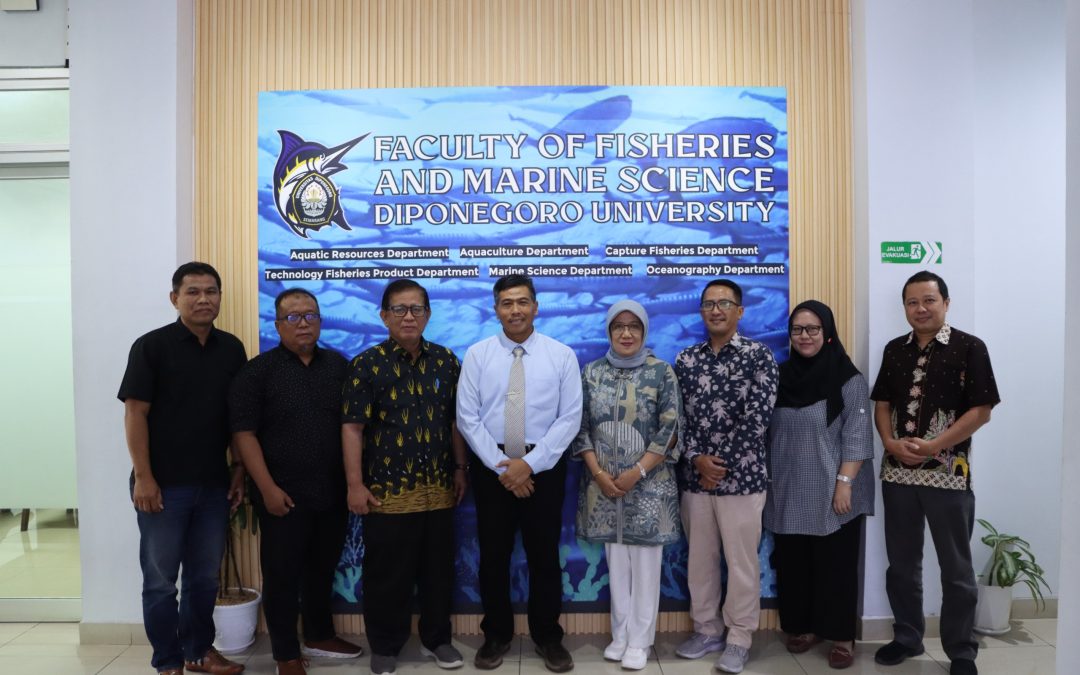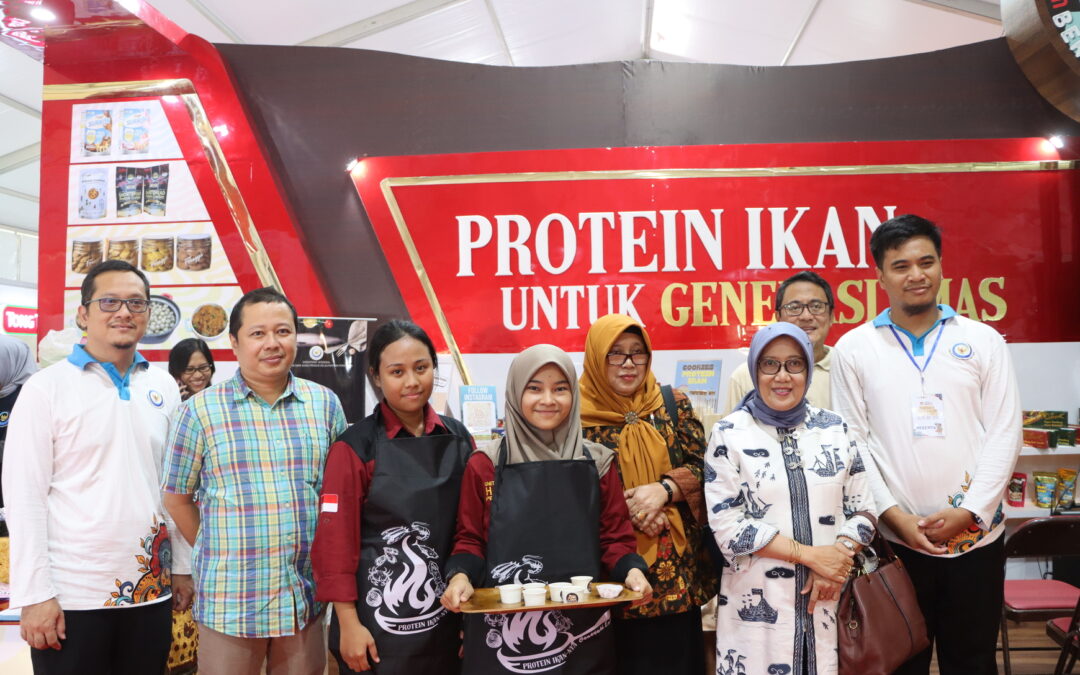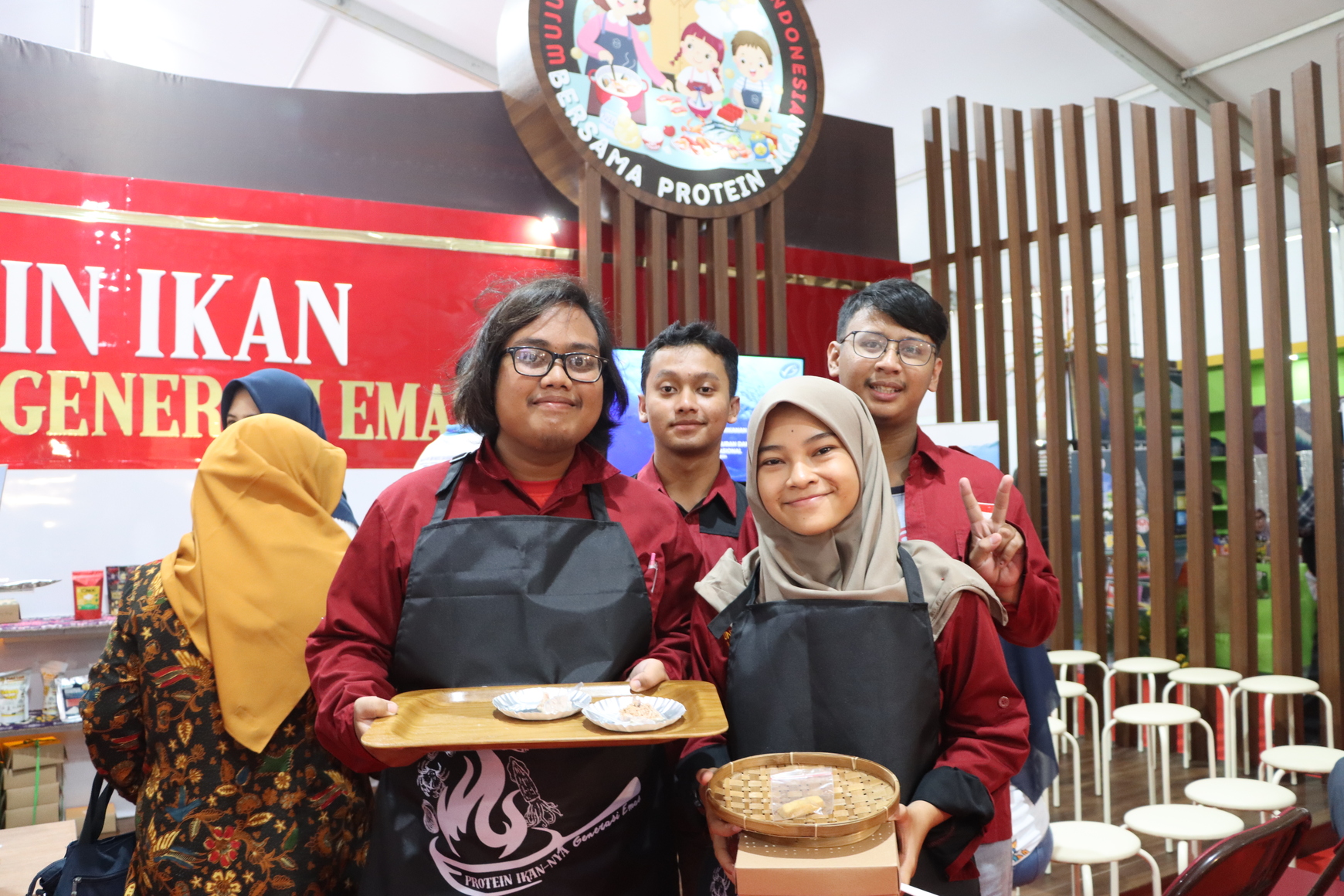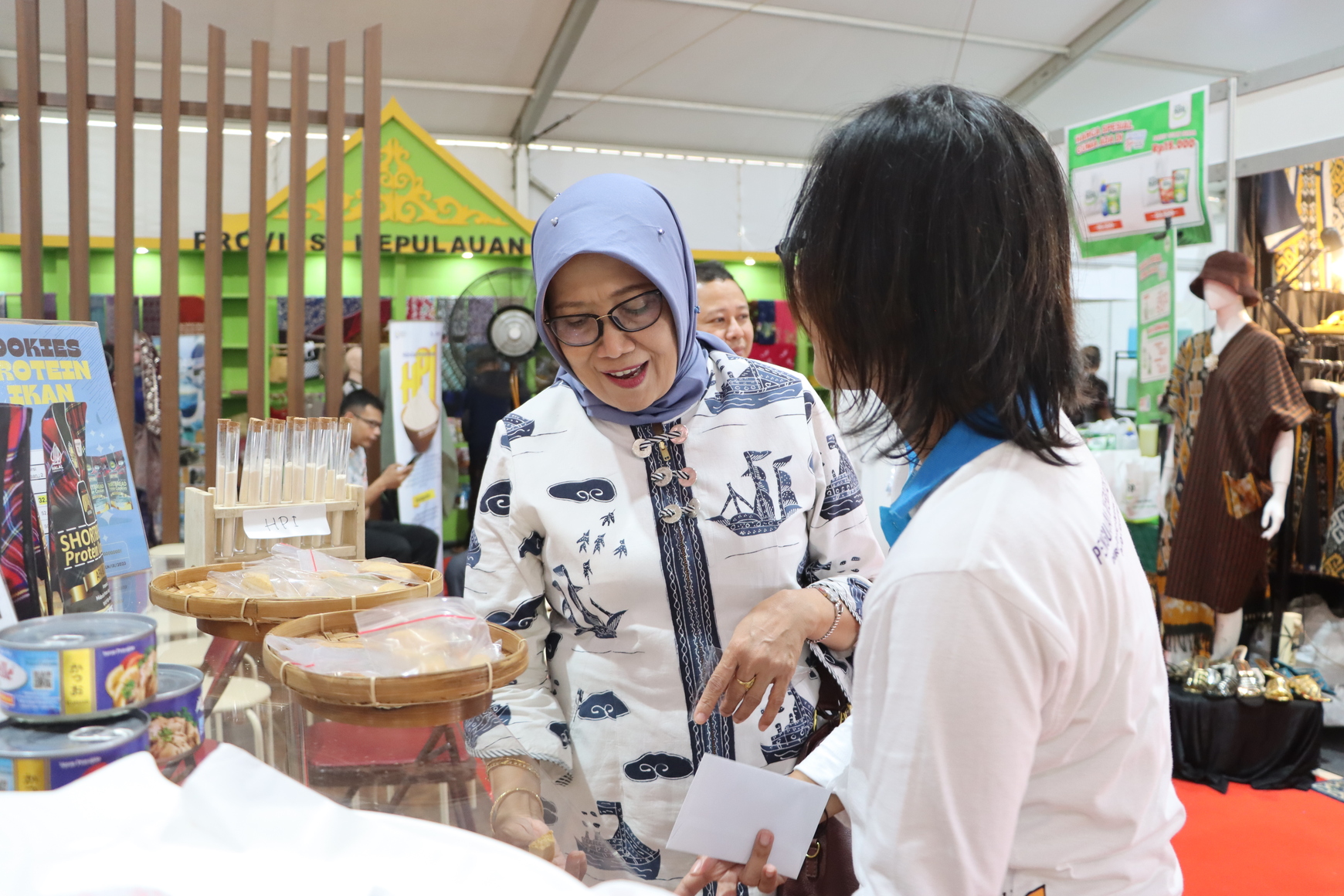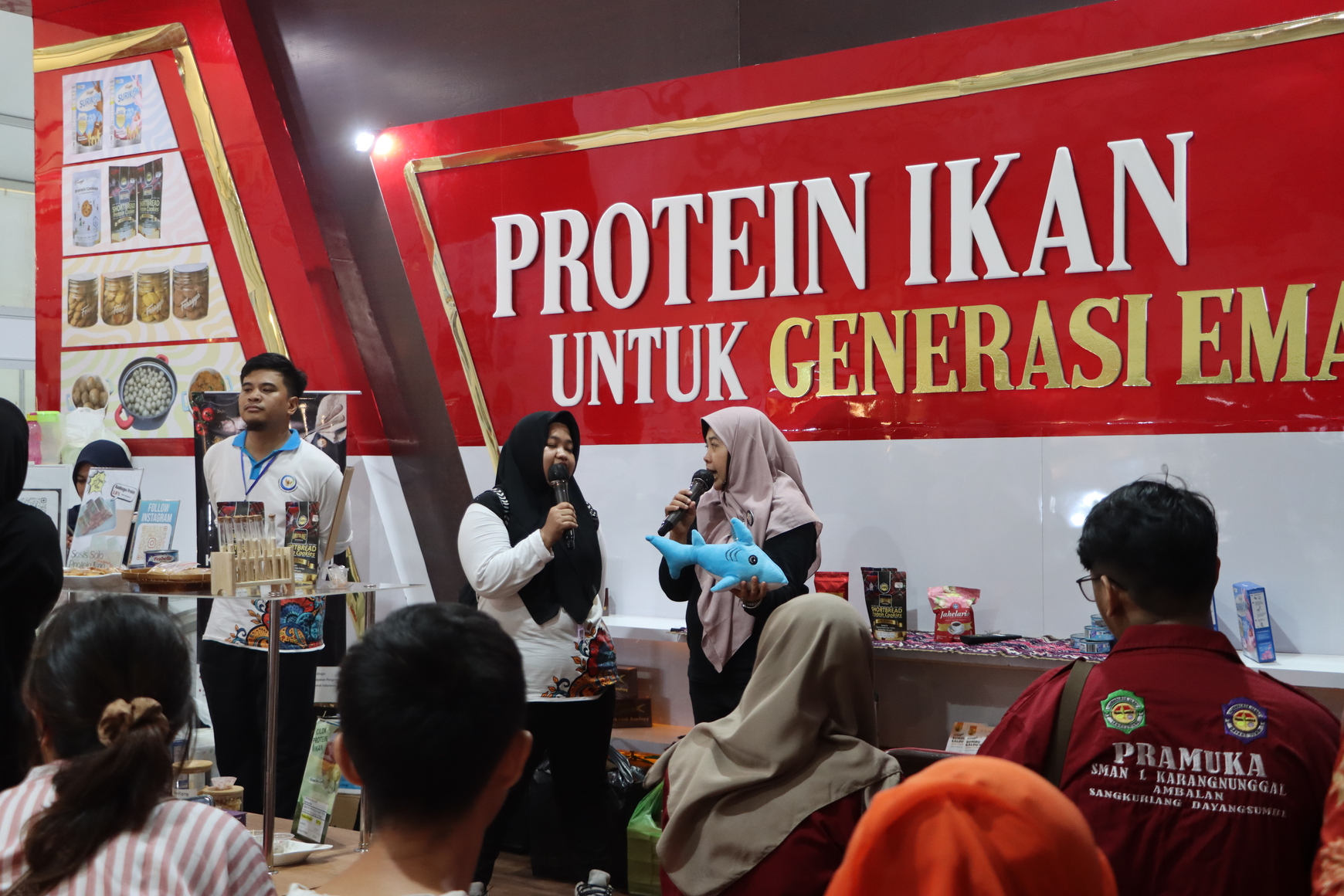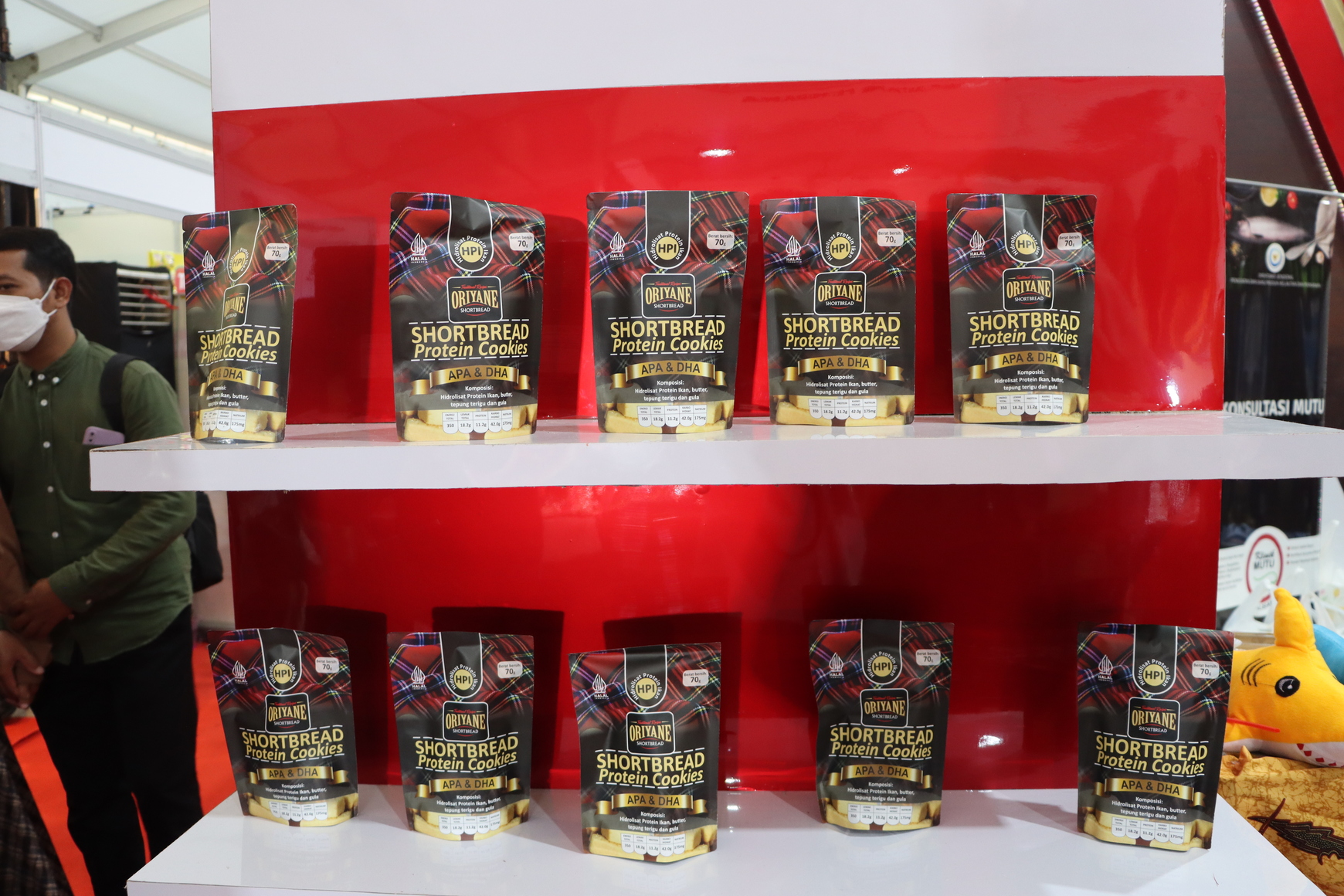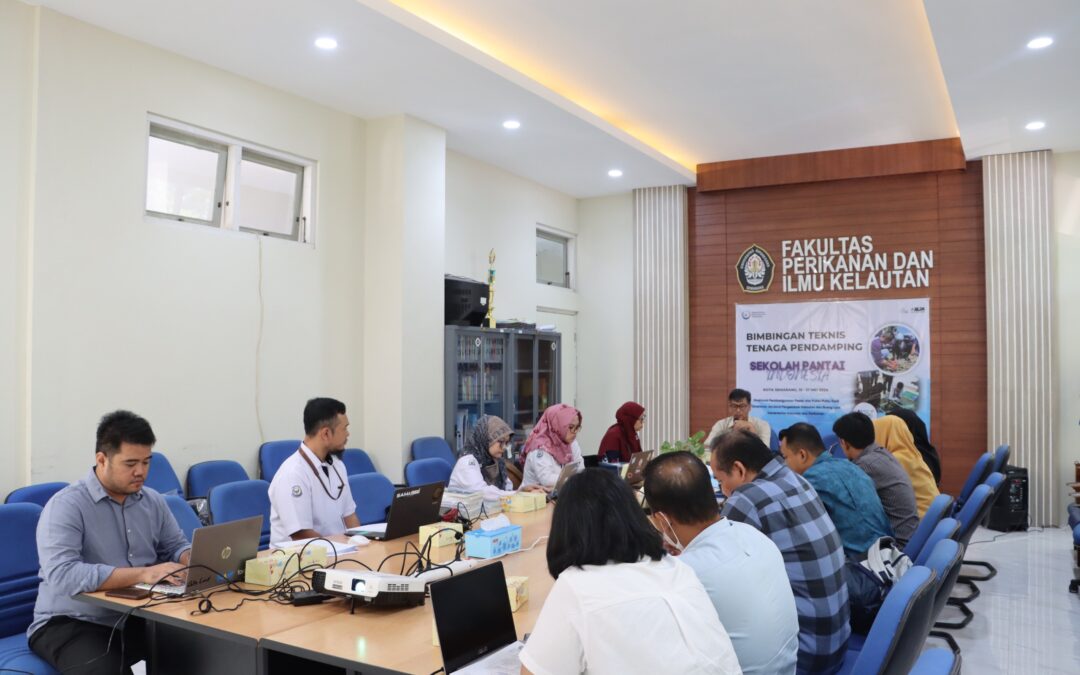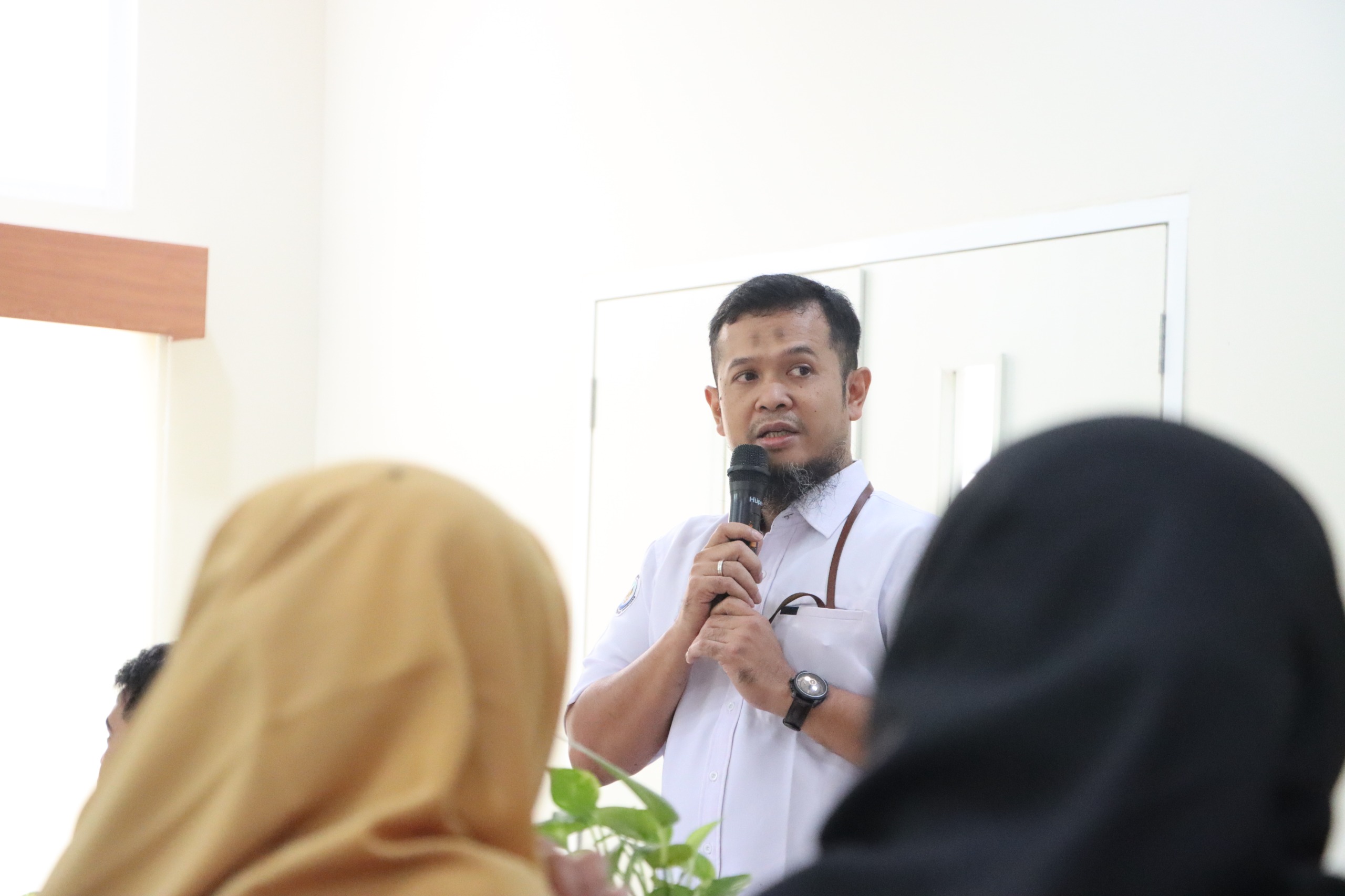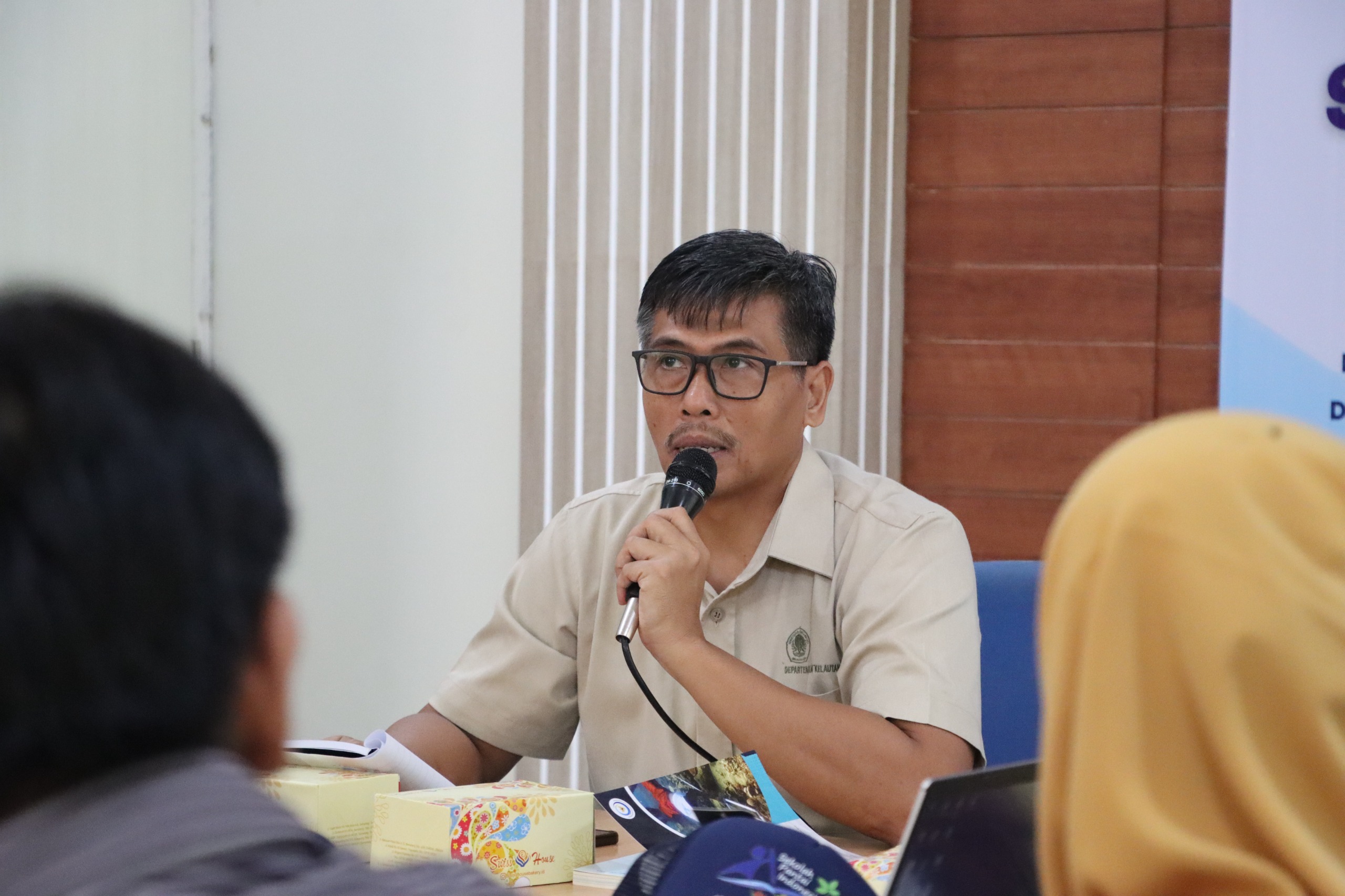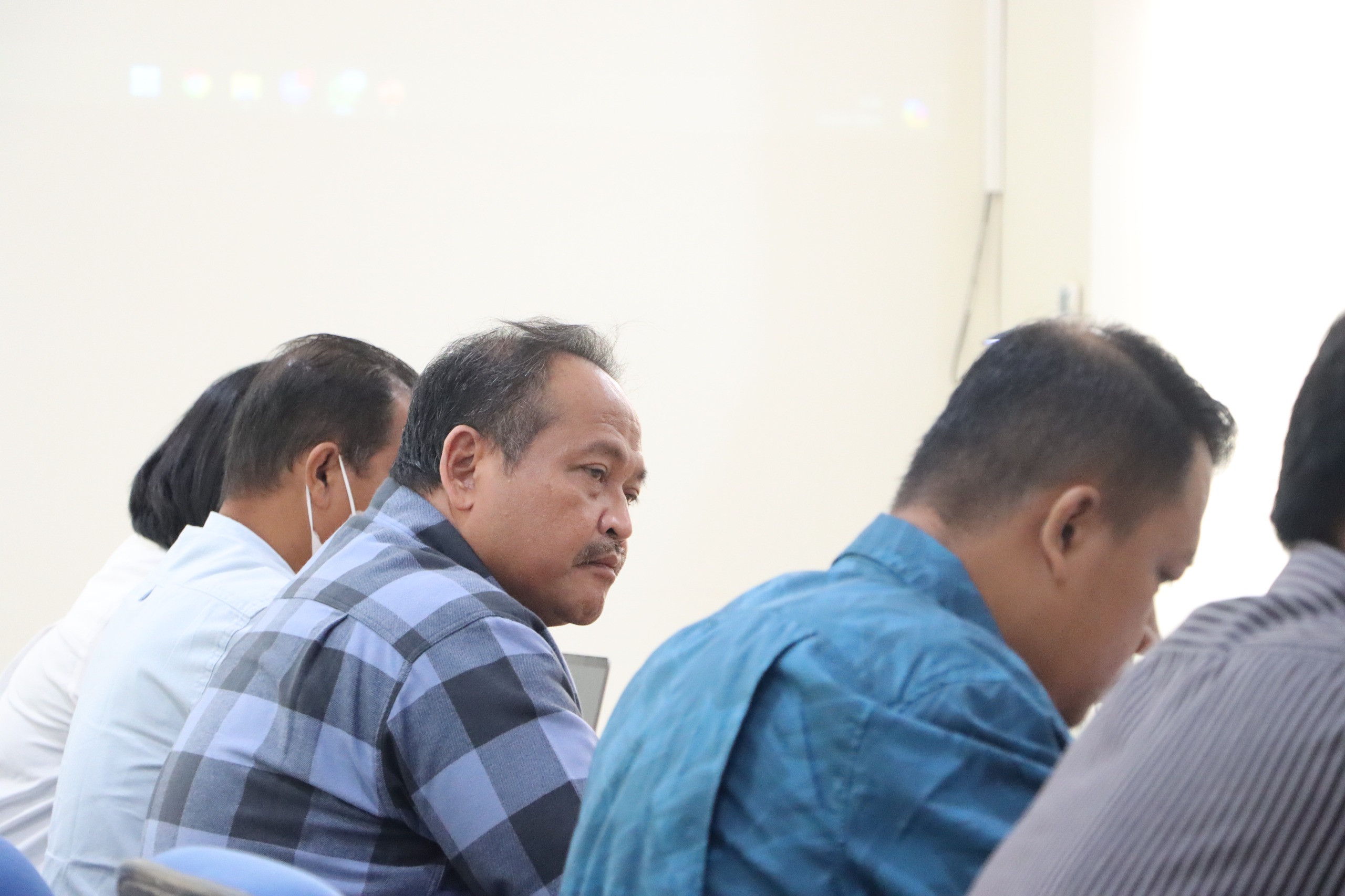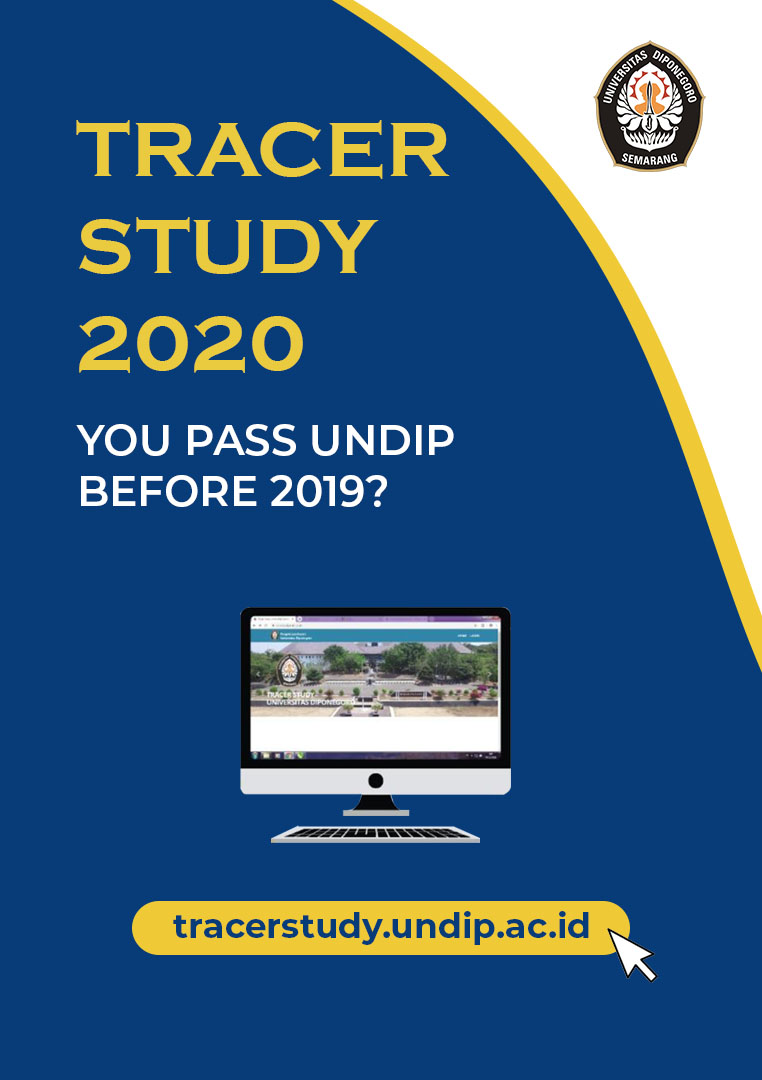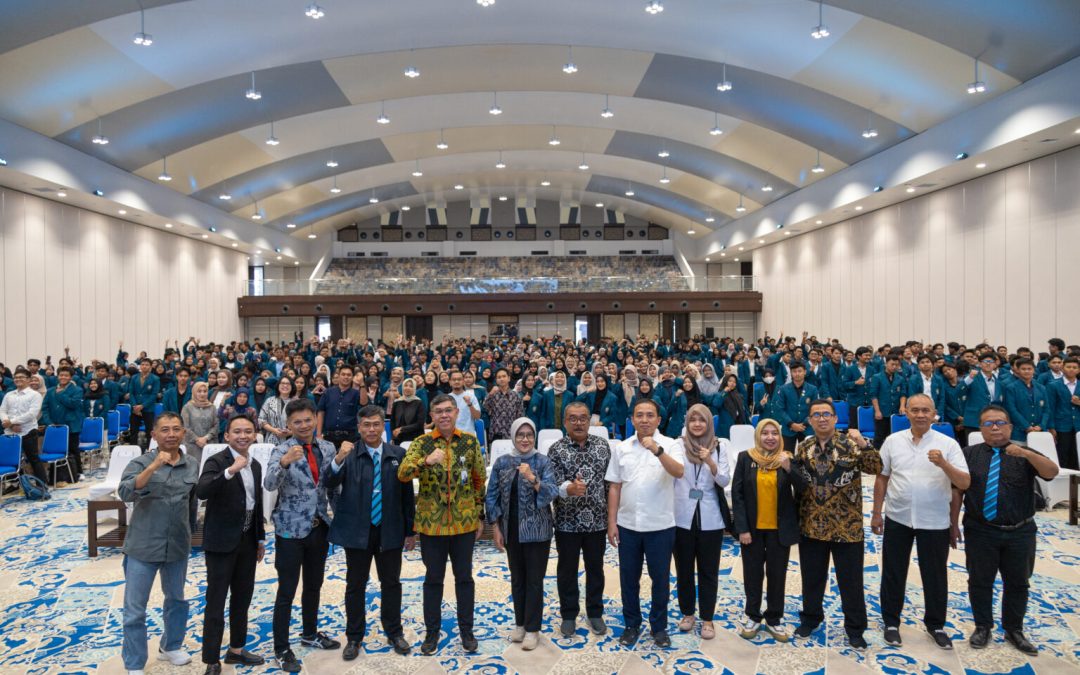
Blue Economic Literacy in the Public Lecture of the 30th Anniversary of the Faculty of Fisheries and Marine Series UNDIP
Semarang – Central Java (27/8). The Faculty of Fisheries and Marine Science (FPIK) at Diponegoro University (UNDIP) held a public lecture with the theme “Optimization of the Blue Economy: Marine Biotechnology and Climate Change Solutions” in celebration of the 30th Anniversary of FPIK UNDIP at the Multipurpose Hall Muladi Dome, UNDIP Tembalang campus. The public lecture aimed to provide students with an understanding and enhance their creativity in biotechnology innovation and climate change mitigation to boost the blue economy in Indonesia.
Speaking online, the Minister of Marine Affairs and Fisheries of the Republic of Indonesia, Ir. Sakti Wahyu Trenggono, M.M., emphasized the importance of optimizing the blue economy. “Optimize fisheries by making ecology the top priority, and the blue economy must become mainstream in policy-making, research and technological innovation, as well as economic and industrial development in Indonesia, especially to achieve the triple win of Ocean Health, Ocean Wealth, and Ocean Prosperity,” said Sakti Wahyu Trenggono.
Representing the UNDIP Rector, the Vice Rector for Innovation and Cooperation, Wijayanto, S.IP., M.Si., Ph.D., stated, “The majority of Indonesia’s territory is the ocean, so the sea and its resources are Indonesia’s future. Through the blue economy, particularly fisheries, we can drive economic growth and food security.”
Wijayanto further explained, “In line with the blue economy program, Diponegoro University has supported poverty alleviation and food security programs by opening an undergraduate Agribusiness program, which focuses on agriculture and its business management, at PSDKU (Study Program Outside the Main Campus) UNDIP in Batang. At the UNDIP campus in Jepara, Diponegoro University opened an undergraduate program in Fisheries and Marine Business Technology.”
This public lecture featured four speakers: I Nyoman Radiarta (Head of the Agency for Extension and Human Resources Development in Marine Affairs and Fisheries); Abung Maruli Simanjuntak, S.Pi., M.Si. from DSM-Firmenich Animal Nutrition & Health; Guruh Suryawan, S.Pi. from PT Central Proteina Prima Tbk.; and Prof. Dr. Sc. Anindya Wirasatriya, S.T., M.Si., M.Sc., a professor of oceanography at FPIK UNDIP.
In the first session of the public lecture, I Nyoman Radiarta (Head of the Agency for Extension and Human Resources Development in Marine Affairs and Fisheries) presented material on the Implementation of Blue Economy Policies in Indonesia’s Marine and Fisheries Sector. He referenced the World Economic Forum, United Nations, FAO (2018) predictions that the global population will grow by more than 26% by 2050, leading to an estimated 70% increase in global protein demand. The growing population will result in increased global demand for fish, with most of the supply expected to come from aquaculture production.
Therefore, blue economy policies are needed for sustainable marine and fisheries development. The goal is to protect the sea and its resources, reduce pressure and environmentally harmful fishing activities, and safeguard marine areas. I Nyoman Radiarta outlined five critical actions for implementing the blue economy program in the marine and fisheries sector, including expanding marine conservation areas; measured fishing based on quotas; developing sustainable marine, coastal, and inland aquaculture; monitoring and controlling coastal and small island areas; and cleaning up marine plastic waste through the Fishermen’s Participation Movement.
In the second session, three speakers were featured: Abung Maruli Simanjuntak, S.Pi., M.Si. from DSM-Firmenich Animal Nutrition & Health; Guruh Suryawan, S.Pi. from PT Central Proteina Prima Tbk.; and Prof. Dr. Sc. Anindya Wirasatriya, S.T., M.Si., M.Sc., a professor of oceanography at FPIK UNDIP. The three speakers discussed three topics: the application of probiotics to support shrimp farming, best practices in sustainable shrimp farming, and mitigation and climate change. (Ut-Public Relations)

